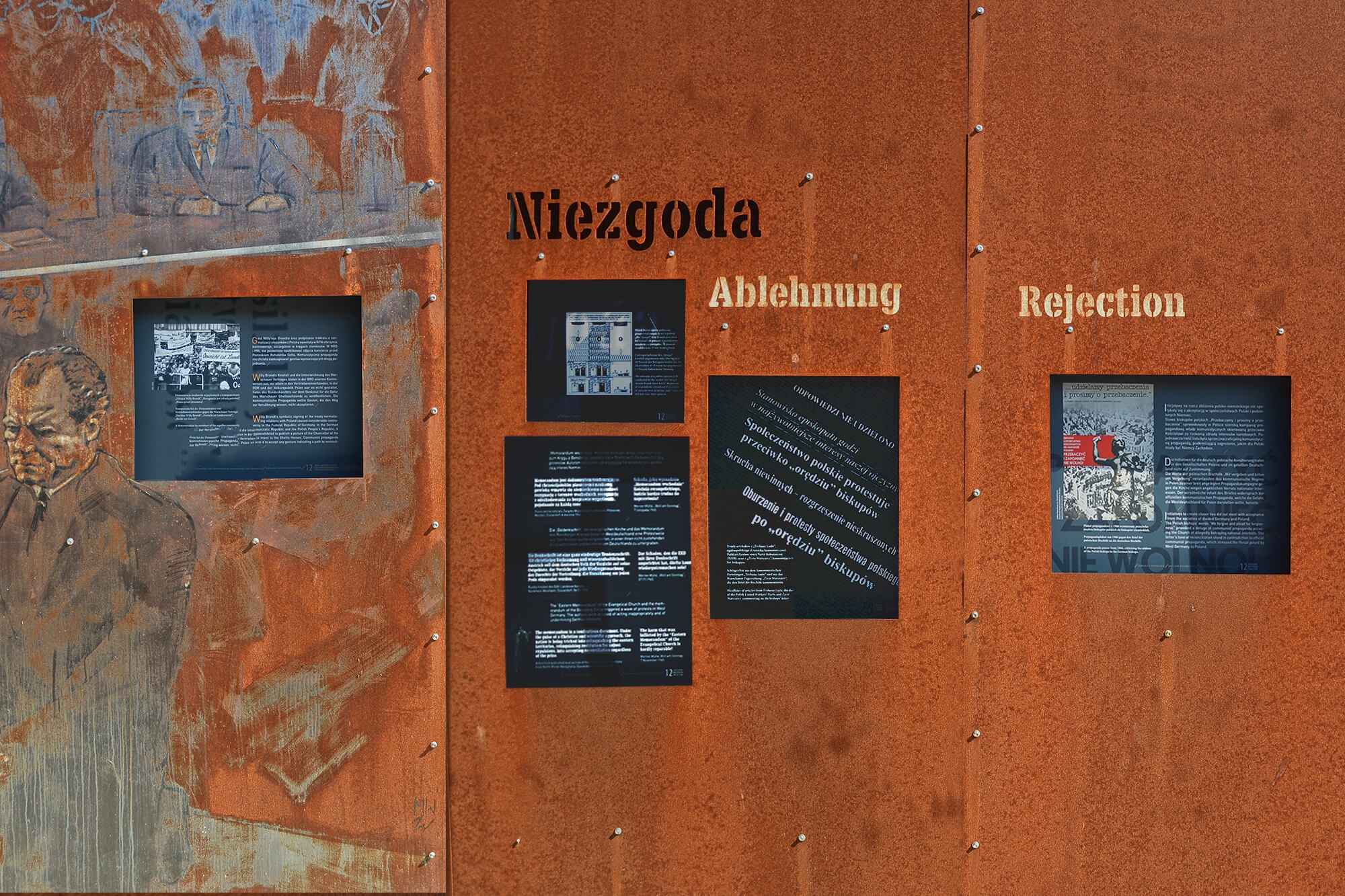Courage and
reconciliation
-
Opposition to the German-Polish rapprochement
Even twenty years after the end of the war, a political or a social rapprochement was not self-evident and the path to reconciliation between Germany and Poland was not easy. The so-called Eastern memorandum (“Ostdenkschrift") of the Protestant Church, the letter from the Polish bishops (1965) and Willy Brandt’s genuflection (1970) were strongly criticized in West Germany and Poland. In the Federal Republic, the recognition of the Oder-Neisse border was controversial because it could also be understood as a recognition of the GDR. In Poland, the letter from the bishops was massively criticized, because it contradicted the anti-German communist propaganda.
Only in 1972, the debates ended with the ratification of the Treaty of Warsaw, which included the recognition of the Oder-Neisse border, and the establishment of Polish dioceses in former German territories by Pope Paul VI. -
Trybuna Ludu
The Trybuna Ludu (“People’s Tribune”) was one of the largest daily newspapers in communist Poland and the official newspaper of the Polish United Workers' Party (PZPR). It was established in 1948 and existed until the end of communism in Poland. As the mouthpiece of the PZPR, the Trybuna Ludu criticized the German-Polish rapprochement on the initiative of the Polish bishops and commented on it with the headline “Outrage and protests of Polish society after “message” from bishops”.
At the end of the 1980s, the Trybuna Ludu reached its highest circulation with 1.9 million printed copies. Its last edition was published in January 1990. Only two months later, the succeeding newspaper, the Trybuna, was established. But there was only a small circulation, because the newspaper was still associated with the communist party. The last edition was published in December 2009.- Other headlines were:
- "Answers were not given"
- "The position of the bishops violates the most important interests of our homeland"
- "The Polish people protest against the proclamation of the bishops"
- "The remorse of the innocent- Absolution of the remorseless"
- "Outrage and protests of the Polish society after 'message' from bishops"
-
Propaganda poster protesting bishops' letter
The propaganda poster was published in 1966 by the Voivodeship Committee Wrocław of the Polish United Workers' Party as a reaction to the letter from the bishops. It shows the Mermaid of Warsaw - patron of the city - 1945, partly destroyed, without sword and shield, which, according to the legend, serves to defend Warsaw. The background of the poster illustrates Warsaw after being destroyed by the Wehrmacht during the Second World War. At the top there is a quotation of the letter from the bishops: “We forgive and ask for forgiveness”. On the left side on a red background the following statement can be seen: “We cannot forgive and forget the crimes of genocide against the Polish nation.”



